Sara Roche was lucky to discover her passion early on in life. Growing up on a fourth-generation farm (home to Kylemore Farmhouse Cheese), with a variety of animals including a pedigree Holstein Friesian herd, she helped to milk the cows and feed lambs before school, and if they needed some TLC, Sara would have been close at hand.
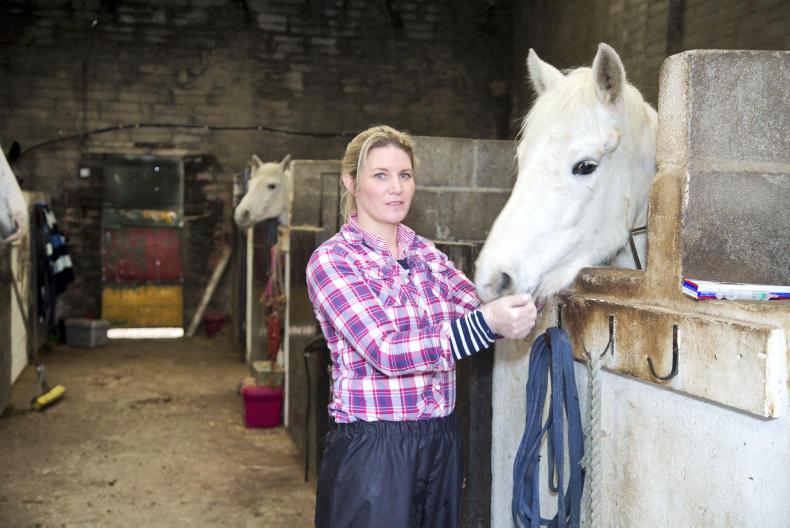
Sara Roche was lucky to discover her passion early on in life. Growing up on a fourth-generation farm (home to Kylemore Farmhouse Cheese), with a variety of animals including a pedigree Holstein Friesian herd, she helped to milk the cows and feed lambs before school, and if they needed some TLC, Sara would have been close at hand.

Two years ago, Sara – who is a qualified vet – opened her own mixed practice, West Coast Vets, in Bearna, Co Galway, with business partner John Mulligan, who she met during her studies in Glasgow. While it may sound like Sara’s veterinary journey was all plain sailing, it was anything but.
Completing the Leaving Cert, Sara fell short of the points required to study veterinary, but her desire to help sick animals never wavered. In time, perseverance and patience would see her dream intertwine with reality.
“As a kid I loved being out helping my dad and caring for the animals when they were sick. There was always a great passion there from an early age of caring for animals and I got that from my father; and my mother is one of the best calf rearers I have ever come across, she can spot a sick calf before anyone else.
“I was probably 12 or 13 when I decided that I wanted to be a vet. The vets would have come out to our farm when we were calving cows and I loved helping them and handing them equipment. I was always fascinated if they were performing surgery like a section on a cow or a sheep; that inspired me to find a profession so that I could care for animals.
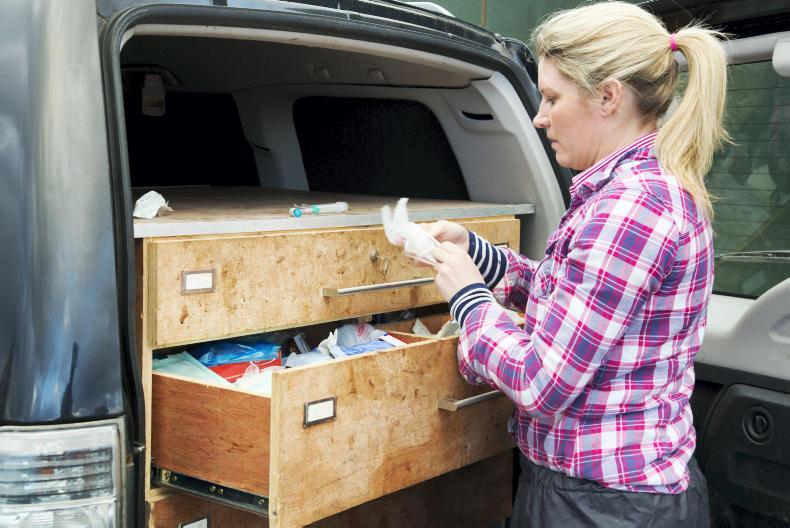
Veterinary Surgeon Sara Roche of West Coast Vets Bearna, Galway. \ David Ruffles.
“I got an above-average Leaving Cert, but didn’t have enough points for veterinary in Dublin. At that time I was at a community school in Portumna, I was playing a lot of sport and probably wasn’t as studious as I should have been. I played senior camogie with my club Davitt’s and was on the Galway county camogie team, which ate into my spare time. I got a place in NUIG to study science so I did that course.
Travel
“I worked in a lab for a few years testing veterinary products and then I went to New Zealand and Australia. I worked with horses on an equine farm in Australia and helped a vet over there. That inspired me to think about going back to the veterinary profession.
“When I came back to Ireland, I worked in the medical device industry for a year or two and took time to make the decision to go back and do veterinary.
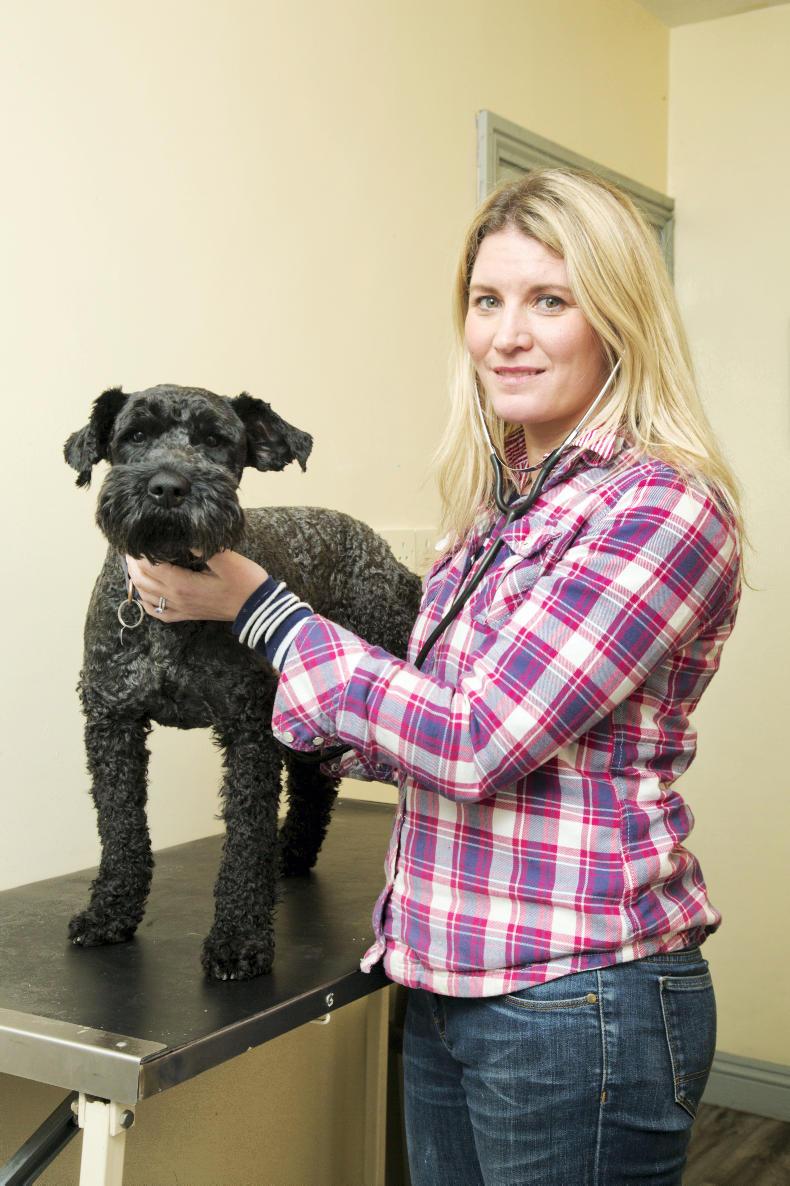
"I was 29 and it was going to be a big commitment. I always had that passion and I kept coming back to the idea of veterinary, I just felt that I had to go and do it. I was delighted when I got the place to study in Glasgow.
“I went to South Wales for my first job (after graduating), then I got an opportunity to come back to Ireland so I moved back to the west and I also worked in a mixed practise in Longford. There is a massive learning curve coming out of college and you need a lot of support in your first year; it’s vital that the practice that you go to gives you that support.
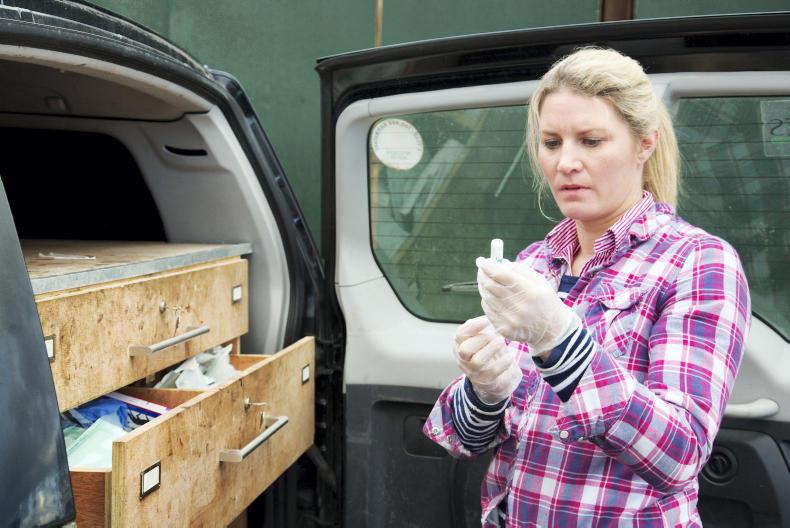
“The hours are very long; when you decide to do veterinary you have to realise that there is going to be on-call, weekend and night work. It’s not a nine-to-five job, you are going to be working unsociable hours. It’s more of a lifestyle, it is kind of like farming.”
Vet shortage
“I think there is a shortage with mixed and farm vets. There is a problem with getting people to stay in mixed practice. I think a lot of people go into it expecting something different and then they get disillusioned with the out of hours, and it’s quite a hard job physically.

.
“A lot of women don’t stay in it, they have kids and end up leaving because of the long hours. I hope in the future for the veterinary profession, that things will change, that more people will go into farm practice and stay in it, and that women can be accommodated so they can have families and come back to the profession later.”
West Coast Vets
“John and I did our own thing for a few years (after university) and at a reunion dinner we were talking, we had the same idea of setting up a practice in Galway. I asked if he would consider going into partnership; we said we would think about it and then six months later, we decided we would.

“Setting up our own practice was very daunting at the start. We had to approach banks and get funding, and go through planning, there is a lot of paper work to get a practice up and running. It took us probably six months to a year to get that sorted. We were very lucky that John’s late mother had a GP practice in Bearna so we had that building to work out of as well.
“The two of us spilt the work and we’re able to manage. I love having a variety of work, you could be in Connemara looking at a sick cow or a horse in the morning and later in the day you could be attending to a dog or cat. Every day is a different challenge.”
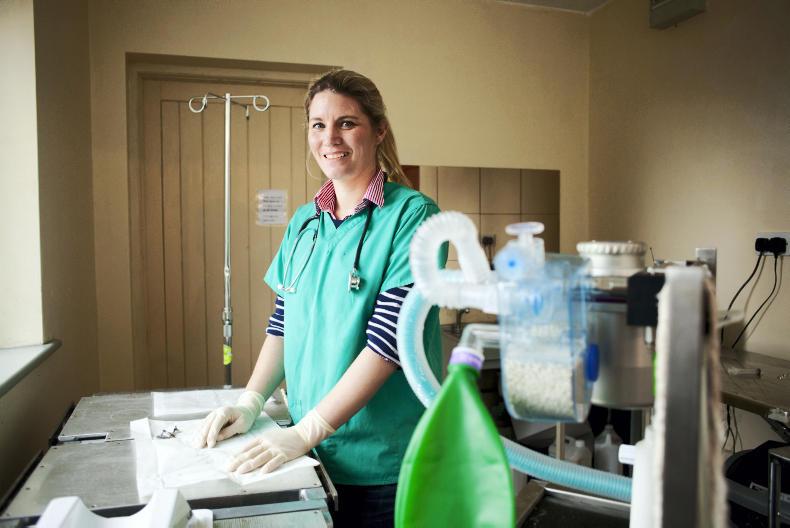
If you would like more information on West Coast Vets, visit their Facebook page.
Read more
'Running keeps you fit physically and mentally for farming'
Sharing is caring with social farming







SHARING OPTIONS: